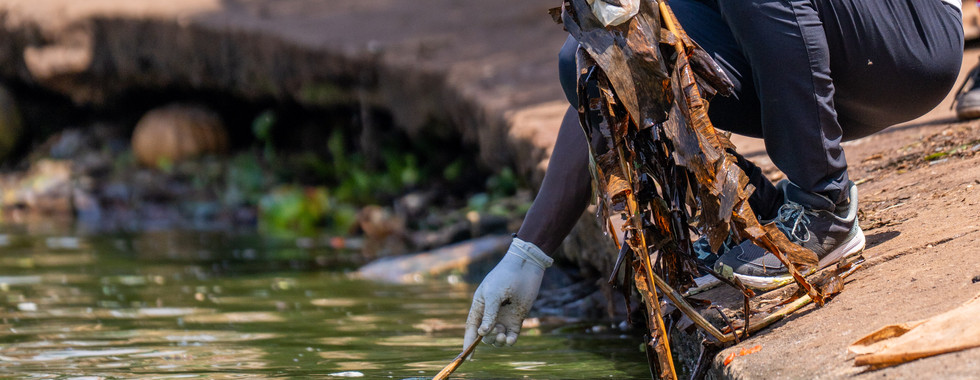Junior Rangers Tackle Ghost Gear in the World's Second-Largest Freshwater Lake - Uganda
- James Clark

- Jul 25, 2025
- 2 min read
Earlier this month, the Lake Victoria Clean Up project joined forces with the Uganda Junior Rangers to host a vibrant community plastic clean-up event along the shores of Lake Victoria. With the support of the Uganda Commonwealth Games Association, the day brought together local school children, athletes, and conservationists, all working together toward a cleaner, safer lake environment. The team removed an amazing 14,522 pieces of harmful plastic litter.
Founded by environmentalist Mutumba Faisal, the Uganda Junior Rangers is a youth-led NGO focused on educating young people in the communities surrounding Kampala about environmental protection. This event formed part of a wider mission to empower the next generation to take ownership of their natural surroundings. Dozens of schoolchildren participated, many experiencing their first hands-on conservation activity. Inspired by the presence of local athletes and role models, they enthusiastically helped remove plastic waste and ghost nets that had accumulated along the shoreline.
Lake Victoria is the world’s second-largest freshwater lake by surface area, with over 45 million people relying on Lake Victoria for food, water and livelihoods. The lake is being threatened by plastic pollution, climate change, invasive species ,and overfishing.
Ghost gear (discarded or lost fishing nets) is a growing concern in Lake Victoria. Though global attention has only recently turned to this deadly form of pollution in oceans, its impact on lakes remains critically under-researched. The Lake Victoria Clean Up project, launched in 2022, was created to address this urgent issue through science-led, community-driven action.
Volunteers combed the lake’s edge, collecting ghost nets and plastic waste. These materials were then sorted and dried for analysis to determine the recyclability of the recovered nets. This work is central to the project's long-term vision: turning harmful waste into useful products that support local livelihoods.
As part of the day’s activities, educational sessions introduced participants to the wider aims of the clean-up initiative, including underwater ghost gear surveys conducted by trained divers and future workshops for fishers and children alike.
The event exemplified the project’s core ethos: fostering environmental stewardship while supporting community development. As the Lake Victoria Clean Up project moves toward becoming a self-sustaining initiative, events like this not only protect the environment but also lay the groundwork for education, innovation, and economic opportunity.
ABOUT THE CAMPAIGN
The Royal Commonwealth Society’s Commonwealth Clean Oceans Plastics Campaign will prevent one million pieces of plastic from entering Commonwealth waterways.
The campaign will combine education and local action to encourage people to reduce their plastic waste, highlight alternatives, and reduce pollution across the Commonwealth.
For the action component of the campaign, the Royal Commonwealth Society has partnered with Commonwealth Sport to deliver the Commonwealth Clean Oceans Plastics Campaign as a core component of The King’s Baton Relay. This newly envisioned King’s Baton Relay will focus on sustainability and environmentalism and was launched by His Majesty The King at Buckingham Palace on Commonwealth Day 2025, beginning a 500-day journey to the Commonwealth Games in Glasgow in July 2026.
Journeying through every Commonwealth nation and territory, this partnership will bring together young people, athletes, conservation groups, and the local community for a week of activities, including a plastic clean-up.
The views and opinions expressed are those of the author and do not necessarily represent those of the Royal Commonwealth Society.



























